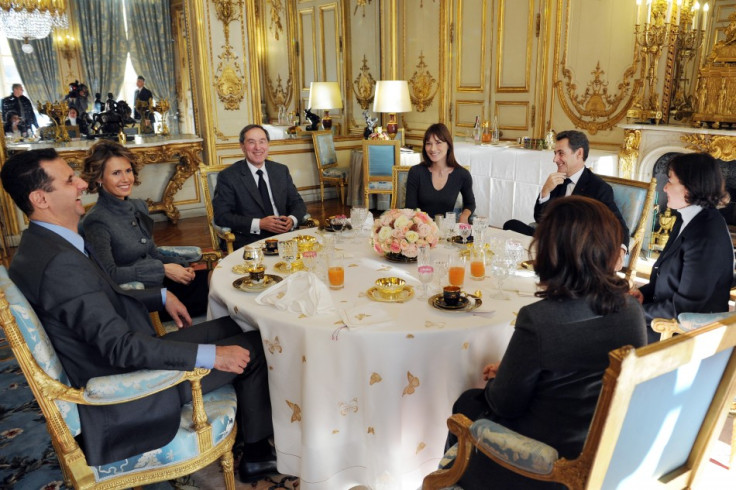France Calls For More Sanctions Against Syria: Sarkozy’s Revenge on his Former ‘Friend’?

French Foreign minister Alain Juppe called for the UN to take new steps against the Syrian regime accused of leading a brutal crackdown on pro-democracy supporters.
In visit in Ankara, Turkey, Alain Juppe reiterated calls to act against Syrian president Bashar al-Assad: "We must continue to exert pressure, the U.N. must act, it is not normal for the U.N. Security Council not to act," Juppe told a joint news conference with Turkish Foreign Minister Ahmet Davutoglu in Ankara. "We have called on Assad to change but the regime did not want to know, which is not acceptable. We are ready to strengthen the sanctions."
Juppe insisted France wants to work in collaboration with Turkey, the Arab League and the Syrian opposition.
He also urged the Syrian opposition to restrain from starting an "armed insurrection."
Ahmet Davutoglu, while backing Juppe's call for more efforts remained vague when asked if Ankara would support a no fly-zone over Syria, saying there might be need to enforce some measures if Syria maintains its crackdown on civilians.
Juppe's new comments came as France has reiterated its will to play an active role on the international scene. In the last twelve months the country has sent troops in Ivory Coast following bouts of violence after the former president Laurent Gbagbo contested the results of a presidential elections which saw his rival Alassane Ouattara emerge as the winner.
A few months later and Paris played a pivitol role in supporting the rebel insurgency against Colonel Gaddafi.
Paris has now decided to play a leading role in mediating the Syrian crisis.
However, human rights activist and Syrians had previously criticised the Sarkozy government 'pro-Assad' stance. Nicolas Sarkozy visited Damascus in September 2008, and January 2009 while Assad also went to Paris in 2009 and 2010.
The French President heaped praise on the dictator saying, "Syria can make an irreplaceable contribution to solving Middle East issues."
At the time France insisted on boosting bi-lateral relations. Ahead of the 2010 visit of Assad, Medecins sans Frontieres. published an open letter to the president warning of the "deterioration in freedom of expression in Syria."
Syria became diplomatically isolated following the assassination of former Lebanese Prime Minister Rafik Hariri in 2005, which was blamed on Syrian agents and aformer French president Jacques Chirac, like many other leaders had cut of ties with Syria.
Syria's welcome on the international scene was however short-lived and Damascus rapidly fell out of favours after leading a brutal crackdown on protesters who demanded more political, social and economic reforms.
Assad's refusal to implement reforms announced in the las few months and the continual violence has angered many of Syria's former friend. The UN and the EU have ordered sanctions against the Syrian regime and the Arab League suspended the country last week.
According to the UN the regime's crackdown has left an estimated 3,500 dead.
© Copyright IBTimes 2024. All rights reserved.





